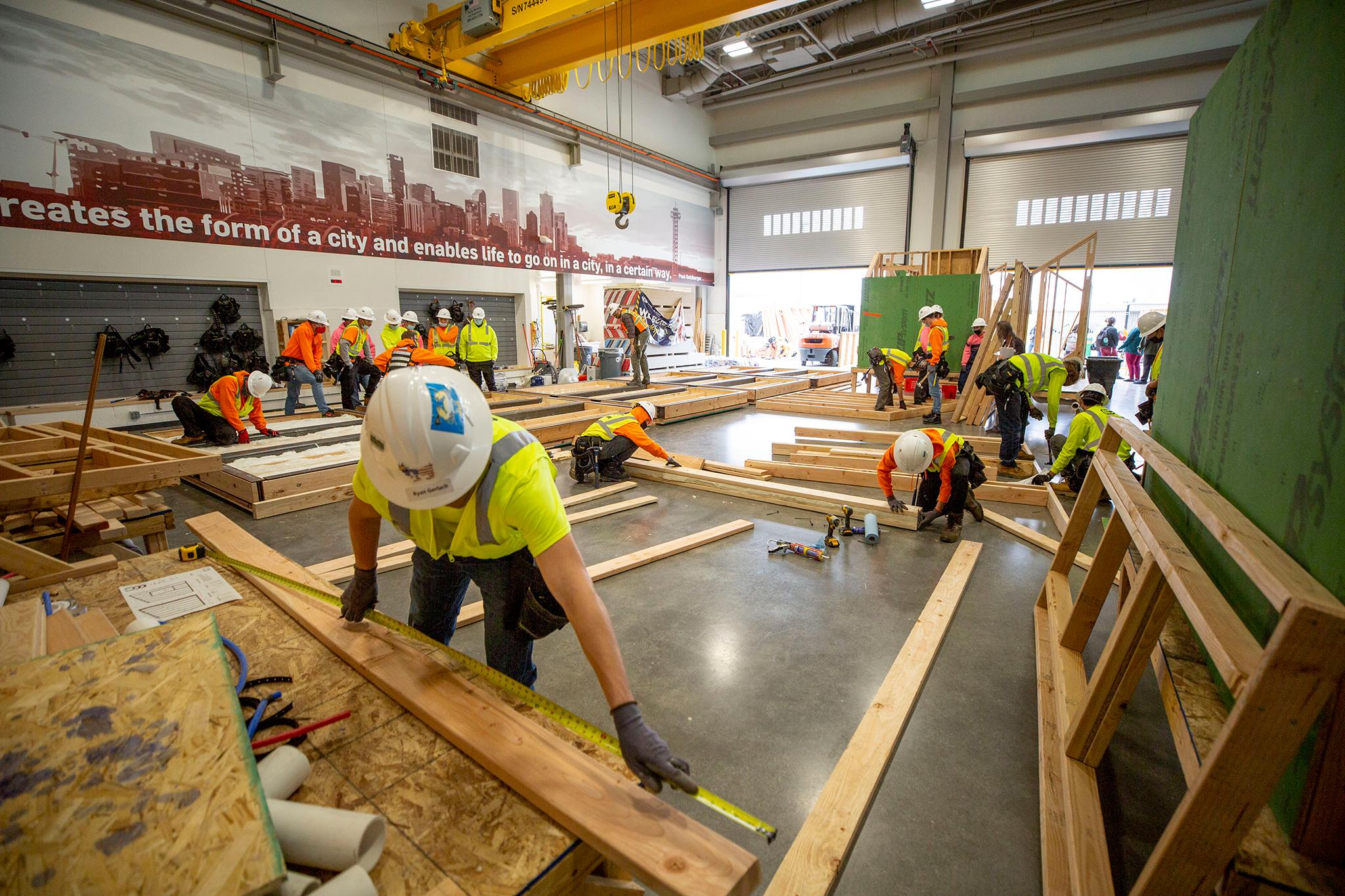Three people started college, two started GED programs and one person graduated from college -- all while living in tiny home villages in Denver.
Last month, Angie Nelson, the city's deputy housing director, highlighted these stories during a City Council committee hearing to show how tiny home villages, which provide housing and additional services for people experiencing homelessness, are working to help people achieve goals beyond gaining permanent housing.
Now, a new location for a tiny home village currently in Globeville will help it expand from 19 to 24 homes.
Denver City Council approved an agreement between the city and the Colorado Village Collaborative to use vacant, city-owned land at 4201 Monroe St. in Elyria-Swansea to house the community. The city has partnered with the Colorado Village Collaborative to run the sites, paying the collaborative about $1 million to operate them.
Dorothy Leyba, the director of tiny home villages at Colorado Village Collaborative, said the 24 homes will be able to accommodate 30 people.
The village, known as the Beloved Community Village, is at 4400 N. Pearl St. It will close on May 1, and at least 11 households (15 people) will be relocating to the replacement site on Monroe Street, according to Leyba. The collaborative currently runs two sites; the other tiny home village is in the Cole neighborhood.
The Monroe Street site will feature five tiny homes built by students at the Cherry Creek Innovation Campus, a high school in Centennial. Leyba said those homes are still under construction, while the 19 homes already available will be moved to the new site.
Each home is about 96 square feet and includes electricity, heating and air conditioning. They don't have plumbing; the village has a double-wide trailer with three full bathrooms and showers, as well as a kitchen.
A resource navigator connects residents to more permanent housing and employment referrals. Leyba said the organization has reached out to area RNOs to provide information about the tiny home villages. The organization plans to put a community garden on the new site.
The village's previous move prompted some outcry from people in Globeville.
"The fear and concern have come from the stigma of unhoused individuals and just not knowing the programs," Leyba said, adding the organization has talked to neighbors who will be across the street from the site. She said the organization has told neighboring residents that "what the tiny home villages are used for and that individuals in the village are humans like anyone else that are just trying to make success in their own journeys."
Tiny home villages are similar to safe outdoor sites, which the Colorado Village Collaborative also operates. Nelson called the tiny home villages a harm-reduction approach to housing, as they try to meet people where they are and get people into permanent housing.
Nelson told lawmakers last month that it's the city's goal to move individuals who live in the tiny home villages to stable housing within 12 months.
The agreement approved on Monday runs for two years, with two one-year renewal options, and an option for the collaborative to expand on the site. The city will lease the land for $10 a year.













